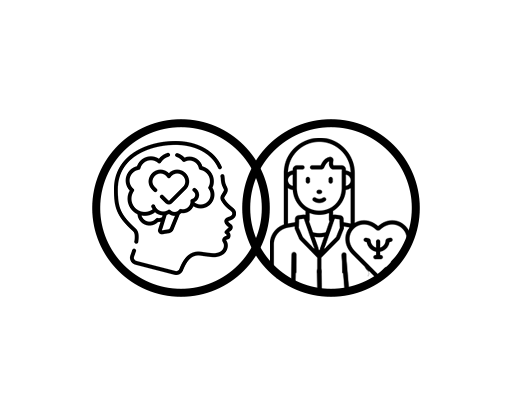Create Your Emotional Identity
- Formulate your emotional palette
- Transform challenging emotions
- Analyse emotions asl information

Through emotion focused therapy there is:
01
Awareness
Of the emotions felt and the exact causes of those emotions
02
Acceptance
Validate the presence of the emotion and experience it completely
03
Transformation
Restructuring the unhealthy emotions that may cause harm to self and others.
04
Strengthening
Using healthy emotions for personality and self-development.
Emotion focused therapy is your guide towards balanced emotions. It teaches you to process the emotions and use them as a source of betterment.
Psychoanalysis has been used to treat:
Relationships
Work on the emotional discontent and build a healthy attachment style through changing the emotional patterns between the relationship. Get rid of negative, rigid interactions by learning to empathise and vocalise.
Rejection
The wounds and insecurities caused by rejections in relationships, profession and social settings trigger deep emotions. Allowing those emotions to flow without letting them alter your beliefs is possible through EFT.
Sex and Porn Addiction
Eradicate the use of external stimulators to maintain a positive mood. Reduce codependency on sex and porn for generation of acceptance and/or satisfaction. Analyse the root cause of the urges towards addiction.
Food Habits
Unhealthy food habits are generated from unfulfilled emotional needs or trauma. Taming the cravings and harmful habits require an emotionally stable condition that can be acquired through EFT.
Benefits of Ananda
Easy bookings, no commuting needed
Express yourself without feeling judged
Choose your own therapist
FAQs
Emotion-focused therapy is a therapeutic approach based on the premise that emotions are key to identity. According to EFT, emotions are also a guide for individual choice and decision making. This type of therapy assumes that lacking emotional awareness or avoiding unpleasant emotions can cause harm.
Emotionally focused therapy is based on the concept that distress in intimate relationships is often related to deeply rooted fears of abandonment, as an individual’s emotional response to these fears may be harmful to relationship partners and put strain on a relationship.
Emotion-focused therapy works in the three stages of de-escalation, restructuring interactions, and consolidation; based on which various techniques are applied for positive results.
